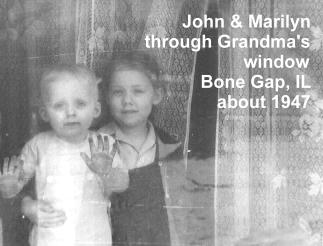

My cousin recently sent my this picture which her dad (my uncle Clayton) had taken of me and my little brother looking out the front window of Grandma's (Grace Cyrena HARMS FAWKES) house. It brought back many memories of listening for the rumble of trains approaching the little town of Bone Gap. We always wanted to stand in the front yard where the engineers could see us so they would wave and blow the whistle, but Grandma made us stay on the porch. She was afraid that the train would derail, cross two ditches and the road, and run up the high bank onto the yard.
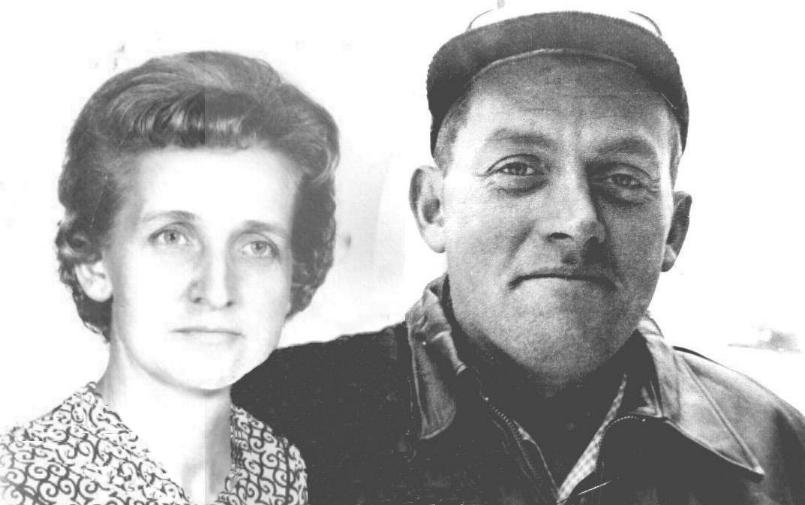
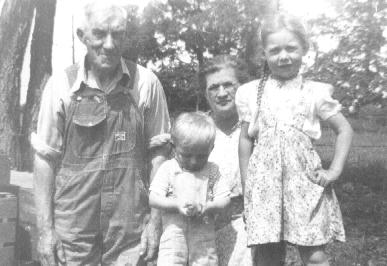
Grandpa and Grandma FAWKES (Loren and Grace) with John and Marilyn about 1948. They lived in the little town of Bone Gap, Illinois and we lived on a small farm a couple of miles away. Grandpa died in the spring of 1949 when John was only two and one-half, but we had accumulated a lot of memories. Grandma continued to live in that house until she was almost ninety.
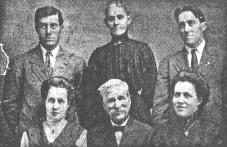
My great grandfather, James W. Fawkes, with his family. In the front row: Ina (Mrs. Kelsey Lambert), James W., and Ethel (Mrs. Len Porter). Back row: Floren H., Eliza A. (Cory) Fawkes, Loren A. (my grandfather).
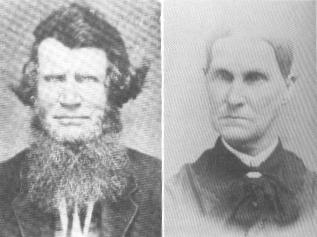
William Hopkins FAWKES was the progenitor our branch of the Fawkes family. He was born in Leicestershire, England, in 1818, and emigrated to Virginia in 1837. William married Ann MARRIOTT, who was also born in England. In 1850, William and Ann brought their family(see chart) to Edwards County, Illinois, and settled on Indian Creek southwest of Bone Gap. William was a wainwright --a builder and repairer of wagons-- and a farmer. Some of William's sons, grandsons, and great grandsons carried on the farming tradition until the 1960s. Today, William's descendants are teachers, doctors, artists, nurses, engineers, chefs, gunsmiths, construction workers,......only a few of us have chosen a life that includes farming. The solid values of the rural tradition passed along to us still seem to give stability to a more complicated world.